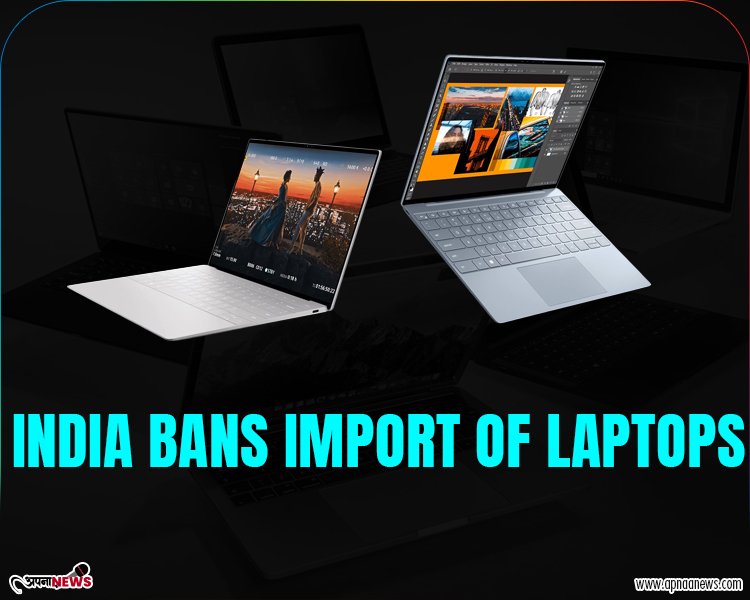India bans import of laptops : Get all details here
Know the details of India's import ban on laptops? Get the latest information on how this ban will affect you, right here! Learn more now

Individuals traveling abroad are granted the privilege of bringing along one laptop, tablet, all-in-one personal computer, or ultra-small form factor computer in their baggage upon their return to India.
This exemption from import restrictions is applicable not only to items acquired from physical stores but also to those purchased through e-commerce platforms and subsequently shipped via post or courier services.
This provision allows travelers to conveniently bring these electronic devices into India without being subjected to import limitations.
Is there a fee to bring a laptop with you?
The Indian government has established certain exemptions for the import of specific electronic devices, such as laptops, tablets, all-in-one personal computers, and ultra-small form factor computers. Under these exemptions, individuals are allowed to bring one unit of such devices into India without any quantity restrictions. However, importers are required to pay the applicable customs duty on the imported item.
The customs duty is the financial charge imposed by the government on goods that are imported into the country. The rate of duty can vary depending on factors such as the type of item being imported and its value. The customs duty is typically paid by the importer to the customs authorities at the port of entry
What are the Restriction on Bringing Laptop
The government has implemented specific exemptions for the import of certain electronic devices such as laptops. If an individual purchases one unit of a tablet, all-in-one personal computer, ultra-small form factor computer, or a similar item from the United States, they are allowed to bring that unit into India without facing any import restrictions. However, the user is required to pay the applicable customs duty on the imported item.
-
These exemptions apply to purchases made from physical stores as well as for units bought from e-commerce portals through postal or courier services.
-
Additionally, there is an exemption from seeking import licenses for consignments containing up to 70 units. This exemption does not apply if the goods are purchased for research and development (RD), testing, benchmarking, evaluation, repair and return, or product development purposes.
-
However, it's important to note that these imported goods must be used exclusively for the stated purposes and cannot be sold. After the intended purpose is fulfilled, the products must either be destroyed if they are no longer usable or exported, as per the notification.
Reason Behind Putting Restriction on Importing laptops
The imposed limitations on laptop and tablet imports serve as a strategic move by the government to stimulate domestic manufacturing, akin to the successful approach taken with smartphone production.
These new regulations are intended to incentivize prominent industry players to encourage and engage in the assembly or manufacturing of their devices within India's borders. The government's objective is to boost local manufacturing capabilities, foster economic growth, and enhance self-reliance in the technology sector.
When Does The Rule Of Banning Import of Laptops Come into action?
The Indian government has opted to defer the implementation of several upcoming regulations pertaining to laptops, tablets, and servers until the 1st of November. This decision has been prompted by apprehensions regarding potential disruptions to the global supply chains.
The Directorate General of Foreign Trade has communicated that during this interim period, consignments can undergo clearance procedures without necessitating the acquisition of a license. This deferment indicates a prudent approach to allow for further evaluation and potential adjustments before these measures take effect.
Conclusion
The Indian government has introduced measures to encourage local manufacturing and self-reliance in the technology sector, specifically concerning laptops, tablets, and servers. While initially planning to implement new restrictions, the government has decided to postpone their enforcement until November 1st, taking into account concerns about potential disruptions to global supply chains






